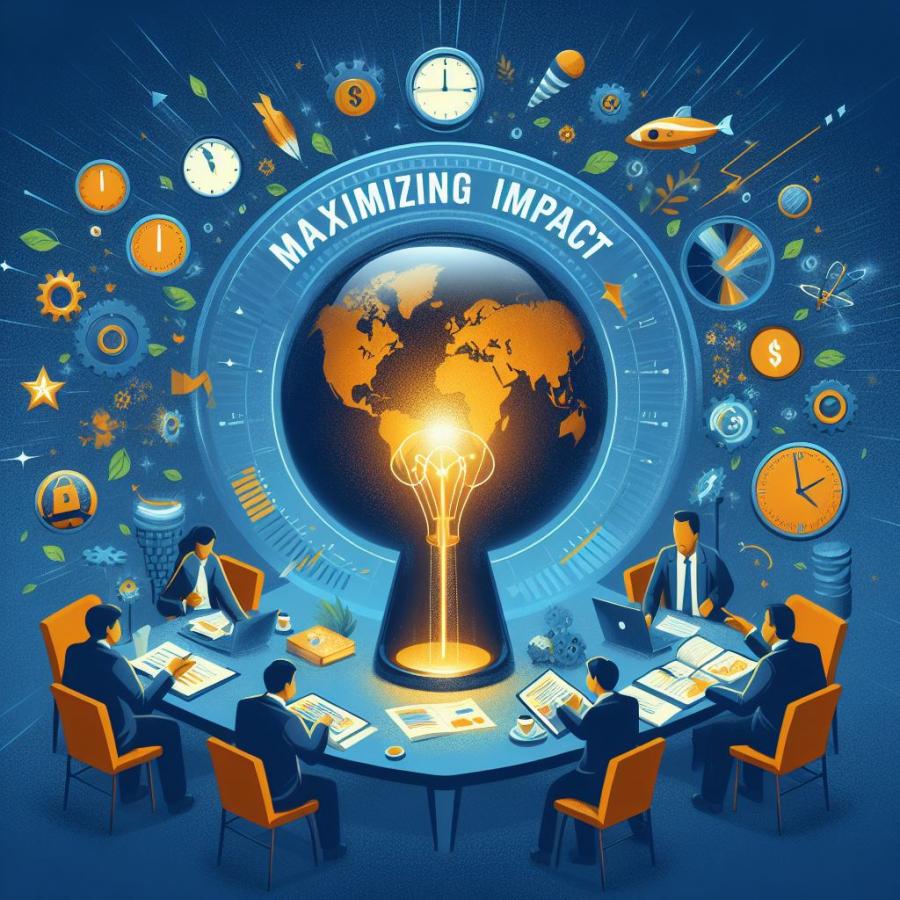
Maximizing Impact: End-of-Year Strategies for NGOs and Preparing for the New Financial Year
Posted on 19 December, 2023 at 09:43
by Nomathamsanqa Mashingaidze
Introduction:
As the year draws to a close, non-governmental organizations (NGOs) have a valuable opportunity to reflect on their achievements, assess their challenges, and strategically plan for the upcoming new financial year. This transitional period presents a chance to optimize operations, strengthen partnerships, and set ambitious goals to drive even greater impact. In this article, we will explore important steps that NGOs can take at the end of the year to make the most of their efforts and prepare for the new financial year.
1. Evaluate and Celebrate Accomplishments:
The end of the year is an ideal time to assess the progress made toward organizational goals. NGOs should conduct a comprehensive evaluation of their projects, initiatives, and campaigns. Identify successes, milestones achieved, and lessons learned throughout the year. Celebrate achievements and acknowledge the hard work and dedication of staff, volunteers, and partners.
2. Assess Challenges and Lessons Learned:
Alongside celebrating accomplishments, NGOs must also critically examine challenges faced during the year. Identify areas where improvements can be made and lessons learned that can be applied in the future. This evaluation process helps refine strategies, enhance program design, and strengthen overall organizational resilience.
3. Engage Stakeholders and Beneficiaries:
Meaningful engagement with stakeholders and beneficiaries is essential for NGOs. Use the end of the year as an opportunity to connect with these key individuals and groups. Seek their feedback, understand their needs, and involve them in decision-making processes. This engagement fosters transparency, builds trust, and ensures that the organization remains aligned with the communities it serves.
4. Review Financial Performance:
Assessing financial performance is crucial to sustaining an NGO's mission. Review budgetary allocations, expenses, and revenue streams to gain insights into financial strengths and weaknesses. Identify areas where resources can be optimized, explore potential funding opportunities, and consider diversifying income sources. This evaluation sets the stage for effective financial planning in the new financial year.
5. Set Strategic Goals and Priorities:
Use the end of the year to set clear and ambitious strategic goals for the upcoming year. Engage key stakeholders, including staff, board members, and beneficiaries, in the goal-setting process. Align objectives with the organization's mission, vision, and core values. Prioritize key initiatives and outline actionable steps to achieve these goals. Setting well-defined targets provides a roadmap for success and ensures that efforts are focused and impactful.
6. Strengthen Partnerships:
Collaboration is a cornerstone of effective NGO work. Evaluate existing partnerships and identify areas for growth and improvement. Reach out to potential new partners who share similar goals and values. Foster mutually beneficial relationships that can enhance the organization's reach, influence, and impact. Establishing strong partnerships strengthens the collective capacity to address complex challenges.
7. Develop a Comprehensive Action Plan:
Create a comprehensive action plan that outlines the steps required to achieve strategic goals in the upcoming year. Break down each goal into actionable tasks, assign responsibilities, and set timelines. Monitor progress regularly and make necessary adjustments as circumstances evolve. This action plan serves as a roadmap for the organization and ensures that efforts are coordinated and aligned.
8. Enhance Organizational Capacities:
Invest in the development of staff and volunteers by providing training, workshops, and skill-building opportunities. Strengthen internal systems and processes, including monitoring and evaluation mechanisms, financial management, and governance structures. By enhancing organizational capacities, NGOs can operate more efficiently and effectively, maximizing their impact and sustainability.
Conclusion:
The end of the year presents NGOs with a unique opportunity to reflect, strategize, and prepare for the new financial year. By evaluating accomplishments, addressing challenges, engaging stakeholders, setting strategic goals, and strengthening partnerships and capacities, NGOs can position themselves for greater impact and success. Embrace this transitional period as a catalyst for positive change and seize the opportunity to create a brighter future for the communities you serve.
